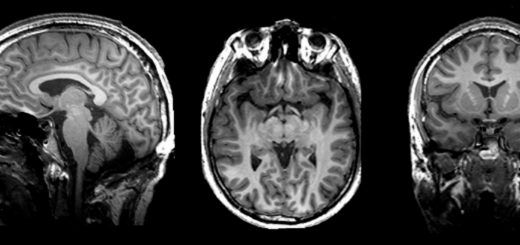Sleep Matters
Recently, the Mental Health Foundation published a report entitled ‘Sleep Matters’ as part of Mental Health Awareness Week.
This report aimed to highlight and raise awareness of a growing body of evidence which suggests that we should make time for, and take care of, our sleep. This was followed by a 23‑page supplement in the Guardian, live web chats, news interviews, and a flurry of online activity with Colin Espie, director of the University of Glasgow Sleep Centre and co‑founder of Sleepio, an organisation set up to raise awareness about sleep.
The Mental Health Foundation (MHF) is a charity committed to improve the lives of people with mental health problems. It carries out research, runs campaigns and aims to improve services for those who suffer from mental health problems. The MHF is a well-established charity that has been campaigning for over sixty years. It has positively affected many lives and is influential in changing governmental policy. This sleep report was compiled with data from the c, an online survey of the UK population’s sleep run by Sleepio. So far, over 6,000 people have registered for this and have had their sleep assessed online with some intriguing results. The results suggested that two-thirds of responders have problems obtaining a good night’s sleep and up to one-third of the population may suffer from insomnia. This was found to influence mood, energy, concentration levels, relationships and day-to-day functioning. The report identifies insomnia as a massive public health problem and the most commonly reported mental health complaint in the UK. The Sleepio website also provides individualised sleep reports and advice based on participants’ responses to sleep related questions. However, people with sleep difficulties may be more likely to take part in the survey and this may have slightly skewed the results.
How much sleep do I need?
One important question the public were asked in the report was ‘how much sleep does an individual need?’ There is no universal answer to this question. The amount of sleep that a person needs is dependent upon their age. For example, newborn babies are likely to sleep for 16 to 18 hours on average per day. Teenagers require more sleep than adults (possibly due to physiological changes in the body). Adults tend to sleep about 6 to 7 hours per day, whereas older adults can range anything between 5 and 11 hours but with naps.
‘Sleep is an active, essential and involuntary process, without which we cannot function effectively. Sleep is not a lifestyle choice; just like breathing, eating or drinking, it is a necessity.’ – The Mental Health Foundation Sleep Matters report 2011.
Why is sleep important?
Sleep is an intricate and active behaviour and is essential for certain bodily functions that help to replenish and protect our immune system. For the brain, sleep allows us to process cognitive information acquired through the course of the day. Sleep consolidates and strengthens our memories, aids learning, and enables daytime performance. Sleep can affect our attention, language performance and reading. It also enables us to understand what we hear, what we interpret from interpersonal relationships and can affect our mood.
The MHF report’s findings suggest that we should be more concerned with our sleep – in the same way someone may be concerned about their diet or exercise. As a result, we can stay healthier by having adequate sleep. Recent scientific evidence suggests that poor sleep may be a risk factor for and could also intensify mental illness such as depression. People with insomnia in particular are more likely to suffer from pain conditions and gastrointestinal distress. Further medical complications can also arise such as hypertension and heart disease. It could also be a risk factor for the development of obesity and diabetes, as suggested in a recent review article by Matteson-Rusby and colleagues1.
Treatment for sleep problems
Most people will seek treatment for insomnia from their general practitioner (GP) and many will be issued with a course of sleep medication, normally after first receiving verbal advice. However, even GPs are sceptical about the effectiveness of treating insomnia with hypnotics 2. Generally, drug therapy for insomnia works on a short term basis. In the long term it can cause negative problems, particularly surrounding the effects of tolerance to such drugs, and as a result drugs may fail to treat chronic insomnia. Cognitive behavioural therapies (rather than drug therapy) could and should be used as a long term treatment approach, as highlighted by Riemann & Perlis3 in their recent assessment of the literature regarding the efficacy of treatments for insomnia. This is in line with the MHF Sleep Matters report which suggests that psychological approaches can be useful in treating insomnia and that a greater awareness and access to these services should be implemented within our health care system.
Psychological approaches normally involve the use of a specially tailored Cognitive Behavioural Therapy for Insomnia treatment programme (CBT-I). Unfortunately for sufferers of chronic insomnia, this is currently extremely hard to access on the NHS. For example, there is currently no known NHS service for this in the West of Scotland. But there is good evidence to suggest that standardised CBT‑I can work for 70% of insomnia sufferers4. As a result, the MHF is campaigning for improved access to this treatment approach. The MHF have also proposed that NICE (the National Council for Health and Clinical Excellence) should develop guidelines for GPs to use non-drug therapies and for further training on the importance of sleep. Furthermore, the website for Sleepio has plans to conduct a randomised controlled trial of web based Cognitive Behavioural Therapy for Insomnia through an easy-to-access online environment. Hopefully, this will be the beginning of an assessment process for this standardised treatment. Also, the online sleep survey will be expanded to reach out to a wider audience with a world version in the pipeline.
More information on this story
If you believe you have a sleep problem, would like to take part in or are interested in sleep research then please visit the University of Glasgow Sleep Centre website for more information.
www.mentalhealth.org.uk/campaigns/sleep/
www.guardian.co.uk/lifeandstyle/sleep
References
- Matteson-Rusby SE, Pigeon WR, Gehrman P, Perlis ML. Why treat insomnia? 2010. The Primary Care Companion to the Journal of Clinical Psychiatry
- Siriwardena, AN, Apekey, T, Tilling, M, Dyas, JV, Middleton, H, Orner, R. General practitioners’ preferences for managing insomnia and opportunities for reducing hypnotic prescribing. 2010. Journal of Evaluation in Clinical Practice
- Riemann, D, Perlis, ML. The treatments of chronic insomnia: a review of benzodiazepine receptor agonists and psychological and behavioural therapies. 2009. Sleep Medicine Reviews,
- Morin CM, Bootzin RR, Buysse DJ, Edinger JD, Espie CA & Lichstein KL. Psychological and behavioural treatment of insomnia: update of the recent evidence (1998-2004). 2006










